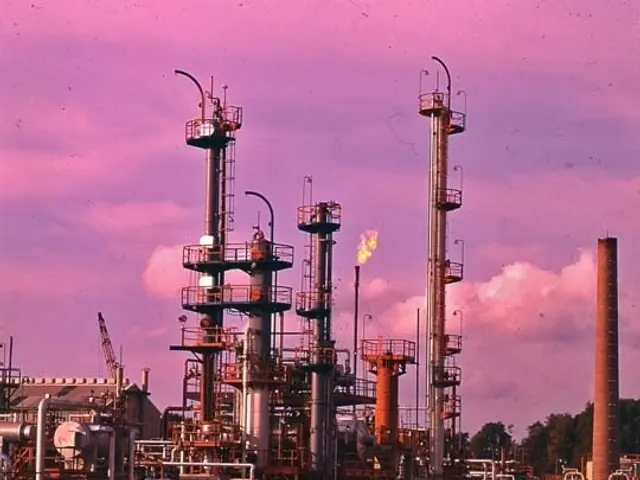Revised: Car Manufacturers Get More Time for Climate Targets Amid Climate Pressure
EU Climate Regulations Provide Carproducers with Extended Compliance Deadlines - EU Climate Goals Provide Automakers Extra Time to Adjust Compliance Strategies
Europe's carmakers are catching a break on EU's climate targets as they face the specter of heavy fines, with the extended timeframe approved in a vote by the European Parliament in Strasbourg.
Forging ahead, the member states still need to approve this, though they already expressed support at a meeting earlier this week. The EU Commission proposed the relaxation of targets, meaning that manufacturers wouldn't need to meet stringent CO2 limits annually, but instead they get three years to comply.
If the juggernauts like Volkswagen, Mercedes-Benz, and BMW overshoot this year, they won't automatically be slapped with fines. They can steer clear of fines altogether if they manage to fall in line with the EU regulations in the ensuing two years.
The Automotive Industry Association (VDA) sees the delay as a timely step, according to VDA President Hildegard Müller. "Setting goals and enabling their realization is more than just political action," Müller told German Press Agency, highlighting global challenges in electric vehicle adoption and the need for expanded charging infrastructure, competitive electricity prices, reliable semiconductor supply, and increased battery production.
Car makers are under immense pressure, encountering tough competition from China and the U.S., where they've made a quicker transition to electric mobility. The industry also battles the trade conflict with the U.S. with 25% tariffs on cars and automotive parts introduced by President Trump as of April's start[2]. The U.S. is the single-largest export market for Germany's automotive industry—importing 13.1% of its exports in 2024 alone[3].
While the sector saw a nearly 25% drop in new car registrations in Germany last year compared to 2019, the year before the pandemic[3], the transport sector has made less progress on climate protection compared to other industries. Felix Creutzig from the Potsdam Institute for Climate Impact Research emphasized that the CO2 fleet limit remains the most significant climate protection instrument in the transport sector, pressuring manufacturers to accelerate their transition to electric vehicles[1].
Environmental Union (EU)CarsEuropeEuropean ParliamentStrasbourgMercedes-BenzVolkswagenBMWHildegard MüllerAutomobilesUSAEuropean CommissionAutomotive Industry Association (VDA)German Press Agency
Detail:
With lobbying by auto manufacturers, the EU Commission proposed extending compliance until the period from 2025-2027, allowing manufacturers to meet yearly average targets[1][4]. Faced with the threat of penalties totaling up to 15 billion euros ($17.0 billion), the delay reduces immediate financial burden for auto manufacturers, minimizing the risk of steep fines[1][4].
Perspective:
The extended timeframe may provide a temporary boost for European auto manufacturers, but critics argue that the delay could pose risks in terms of competitiveness, particularly relative to rapidly developing electric vehicle markets like China[4]. It may also impact the pace of electrification and innovation across the industry[4]. Ultimately, the reprieve could influence the sector's long-term competitiveness and market share.
- The EU Commission, in response to lobbying by car manufacturers, has proposed extending compliance for meeting annual CO2 limits from 2025-2027, a matter that still needs approval from EU member states.
- Despite the extension, car manufacturers, such as Volkswagen, Mercedes-Benz, and BMW, remain under the threat of significant fines totaling up to 15 billion euros if they fail to meet the EU's CO2 limits in the extended period.
- Critics argue that the delay in enforcing the CO2 limits could pose risks to the competitiveness of European car manufacturers, particularly in relation to the rapid development of electric vehicle markets in countries like China.






